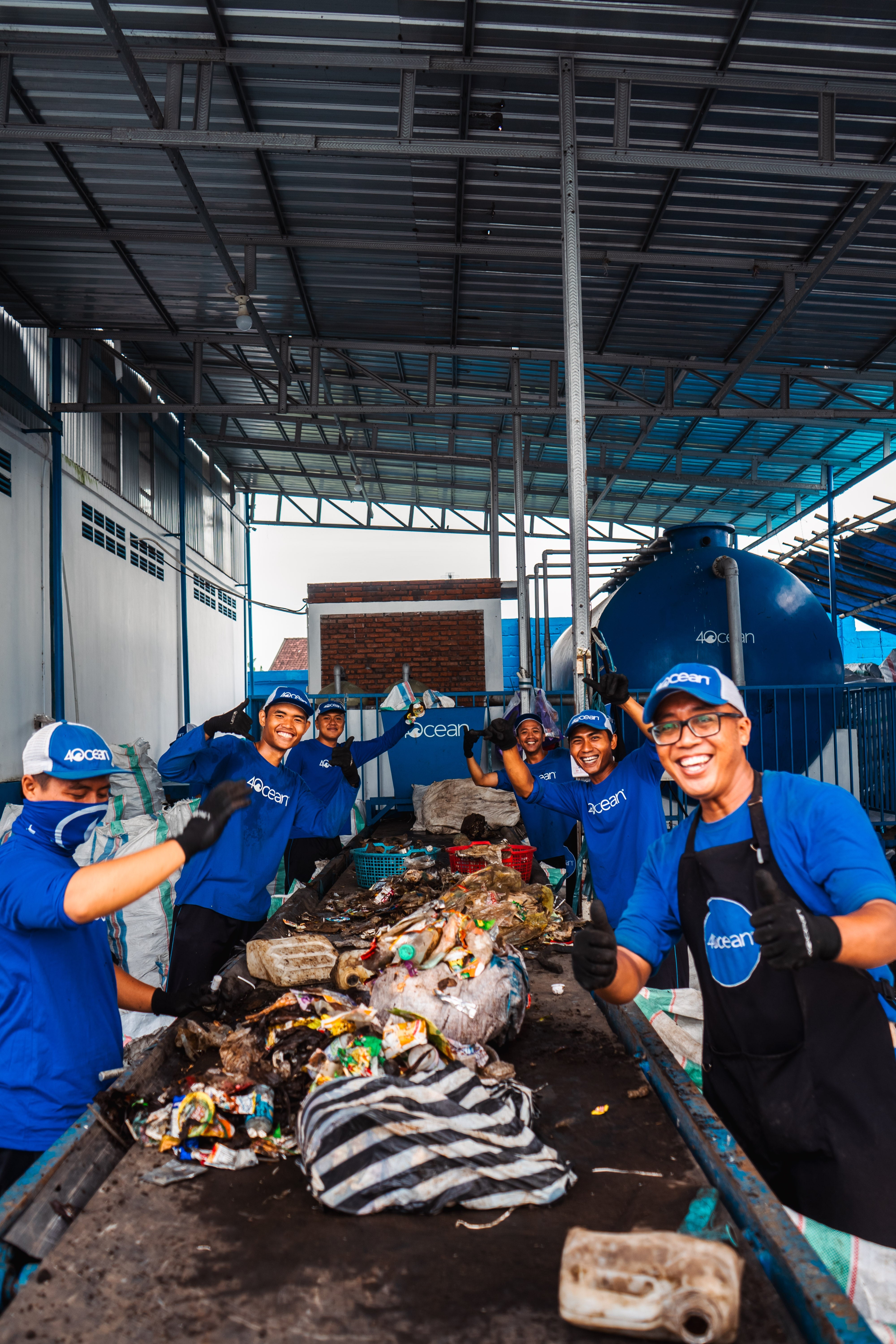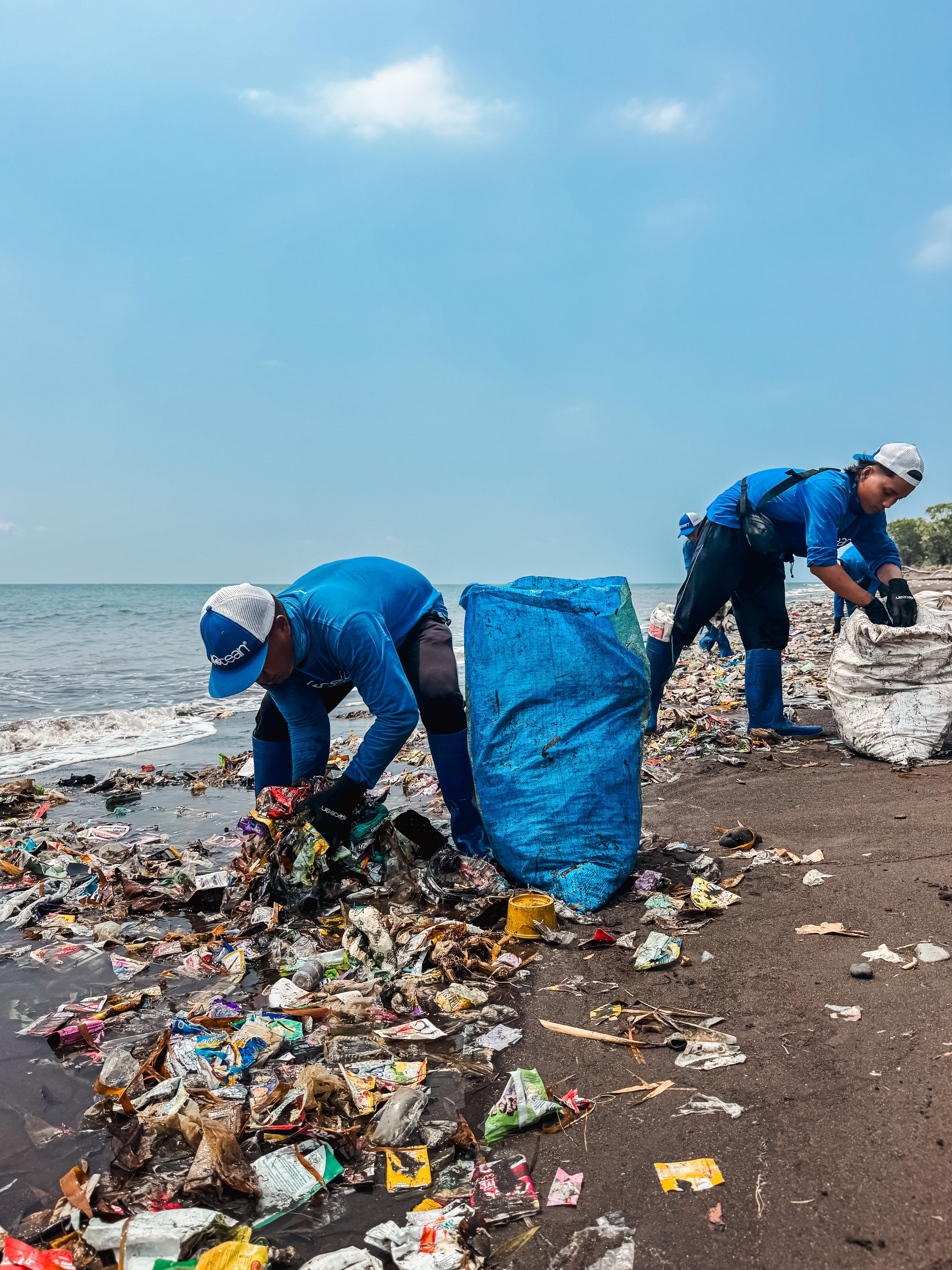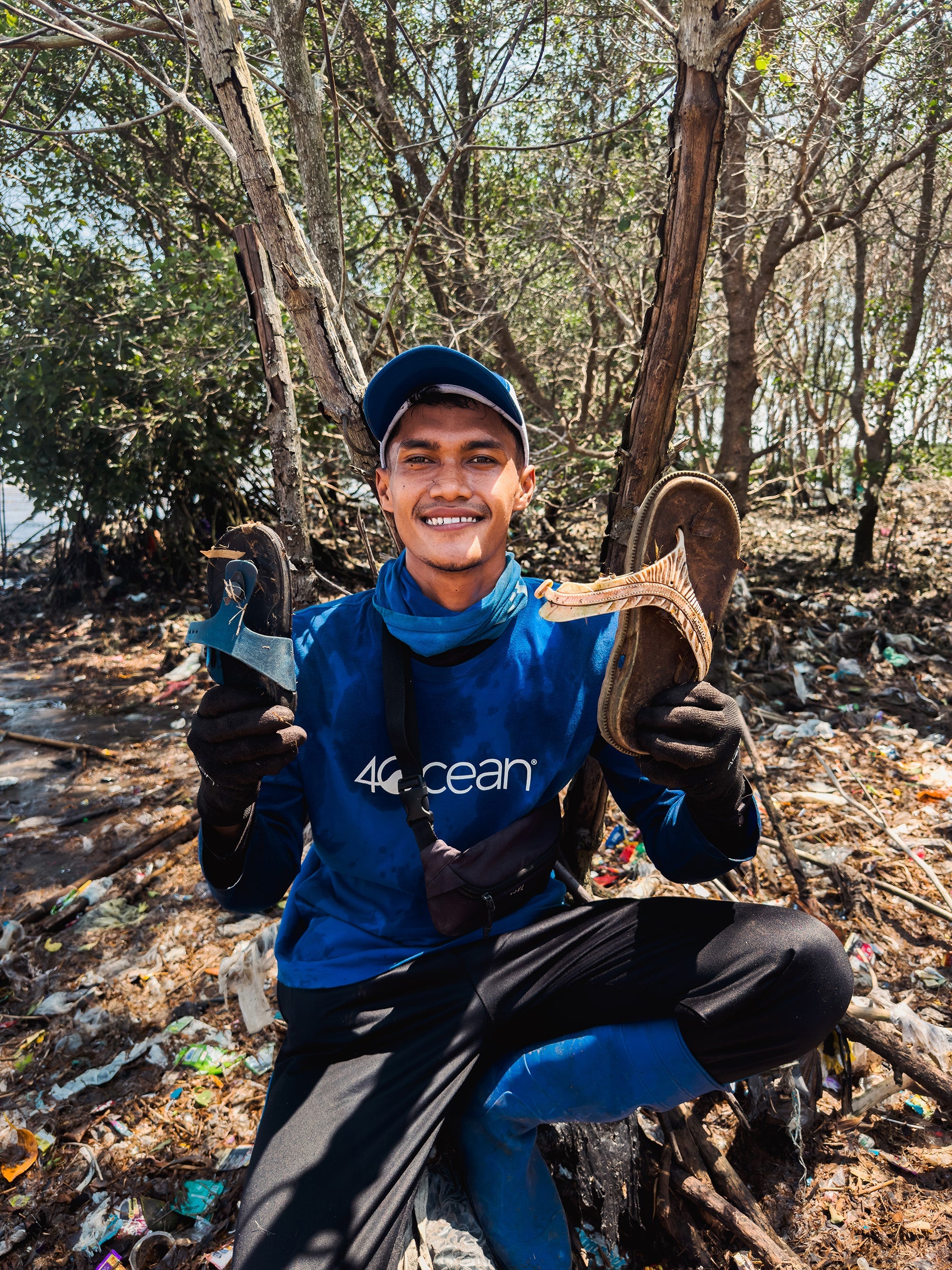5 MIN READ
02-27-2025
Gilimanuk Beach Cleanup: Fighting the Tide of Waste for a Healthier Ocean
Ahmad Fasta, 4ocean Jembrana Content Correspondent
On February 27, 2025, the 4ocean Jembrana team took on a daunting mission at Gilimanuk Beach. The team was well aware that the area had been heavily impacted by marine pollution, but even they were struck by the extent of the waste they uncovered. As they combed through the beach, they found a disturbing mix of debris, including sofas, bags, fabric, and styrofoam. The sight was overwhelming, but what was even more concerning was the continuous arrival of new debris carried in by the ocean's currents, reinforcing the ongoing threat of marine pollution. With each new wave of trash, the team’s resolve only grew stronger. They tirelessly collected 53 sacks of waste, each one a small victory against the overwhelming tide of pollution. After a long day of hard work, the team transported the waste to a proper disposal site, ensuring that it would no longer threaten the beach or marine life. This cleanup highlighted not only the urgent need for action but also the perseverance of the team and the importance of public awareness in the fight against marine pollution.
Over the course of the day, the team collected 1,653 pounds of waste. The types of debris were diverse, ranging from large items like sofas and fabric to more common pollutants such as plastic bags, shoes, and styrofoam. As they worked, it became evident that the waste came from various sources, including local ferry passengers who had carelessly discarded trash into the water, as well as ocean currents that carried debris from as far as Bali and Java. Despite the overwhelming amount of waste, the team’s efforts were vital in reducing the environmental impact on the beach and surrounding waters.
The crew reflected on the day's challenges with a mix of sadness and determination. "No matter how much trash we collect, it’s important to keep coming back, because every cleanup makes a difference," one crew member shared. Their sentiment captured the essence of their work – while the task might seem endless, each cleanup contributes to the larger goal of protecting the environment. The team understood that their actions, though small in the grand scheme, were part of something much bigger. They were not just cleaning a beach; they were fighting for the future of marine ecosystems.

The cleanup at Gilimanuk Beach was far from easy. The team struggled with mixed waste, including difficult-to-handle items like wood and styrofoam fragments that were scattered across the shoreline. The constant arrival of debris from the ocean made it nearly impossible to fully clean the beach in one day. As soon as they cleared one section, more trash would wash ashore, making the work feel never-ending. Despite these challenges, the team pushed forward, knowing that their efforts would make a lasting difference. Their determination was unshaken, and with each sack of waste they collected, they knew they were helping to restore a small piece of the environment.
The pollution at Gilimanuk Beach is a consequence of a combination of factors. Many of the waste items washed ashore are believed to have been carried by rivers from Bali and Java, reaching the ocean and arriving at the beach, particularly during the rainy season. In addition, the behavior of passengers aboard the Gilimanuk-Ketapang ferry, who frequently discard their trash into the water, only adds to the pollution problem. As the ocean currents bring waste from distant areas, the pollution crisis becomes more complex and difficult to manage. This situation emphasizes the need for stronger waste management practices, stricter enforcement of littering laws, and most importantly, public education on the impact of waste on our environment.
The 4ocean Jembrana team’s efforts serve as a reminder that every action, no matter how small, can contribute to a cleaner and healthier planet. Their work highlights the importance of community involvement and the need for continuous efforts to tackle marine pollution, which is a global issue that requires local solutions.











